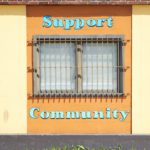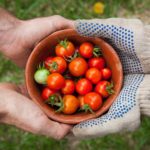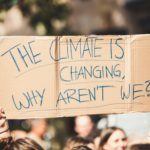"When are things going to get back to normal?" is a question I hear often. Others point out that "normal" will be drastically different. On April 27, Ontario released A Framework for Reopening Our Province. The plan emphasizes the slow and the incremental. I imagine what changes I will encounter in the future: Will a server take my temperature before I enter a restaurant? At the movie theater, will there be several empty seats separating me (and the popcorn bucket) from my friends? Will I wear a … [Read more...]
Losing public spaces, losing oneself
In early March, I had the privilege of speaking at the Wanner Mennonite Church in Cambridge, ON. I was invited to speak about my research – how the public’s perception of addiction affects the ability of people with addiction to recover. It was the first time I had been invited to speak at a church! A call to action The pastor and I spoke a few weeks before my visit. He asked me what kind of presentation I had in mind. It seemed like a peculiar question at the time; I told him that I was … [Read more...]
On physical distancing and community
"We don't call it 'social distancing,' because what we offer here is not only food, it's human connection, even when we must stay physically further apart." This statement was made by the Rev. Dr. Anna Pearson. She is the rector at the Church of the Holy Apostles, which runs New York City's largest soup kitchen. Because of I work with my local Food Not Bombs chapter (which I have discussed previously), I read with interest the New Yorker's April 6 spotlight on how the kitchen, which has not … [Read more...]
To obey or not to obey? The logic of social distancing
Arendt often quoted Shakespeare, and paraphrasing Hamlet – one of Western culture’s greatest procrastinators - is apropos for my sense of ambiguity right now as to whether to obey…or not to? In a previous post, Katy noted how the Covid 19 crisis represented a time for courage. Across the world, we have seen courageous, and irresponsible, actions from leaders and others. But it is not so much courage that I have been thinking about. Rather, it is obedience. In her essay “Personal … [Read more...]
Peer support during political crises
Katy and I presented at a conference this weekend on our work on Arendt and the family. But we added a new twist to our deliberations, that of the peer group. According to Arendt, the peer group not only provides friendship but also political support. Our talk on the peer group was based on Arendt's essay on Rosa Luxemburg, which appears in Men and Dark Times. Luxemburg is one of only two woman who make an appearance in this book. The other woman profiled is the novelist, Isak Dinerson. … [Read more...]




